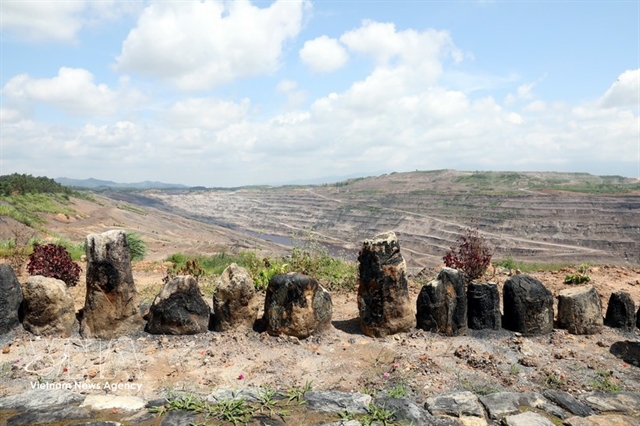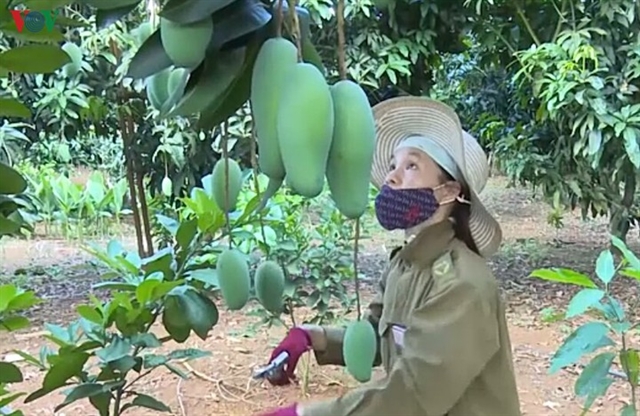 Economy
Economy


|
| A farmer harvests mangoes for export in Mai Sơn District, the northern mountain province of Sơn La. The exported mango is a green-skinned type that weighs from 0.6-1.1 kilo. — Photo vov |
HÀ NỘI — The northern mountain province of Sơn La on Monday exported 30 tonnes of mango to the US, Canada and Australia.
This is the first batch to be exported overseas this year. The mango, grown in Mai Sơn District, is a green-skinned type that weighs from 0.6-1.1 kilo.
Under provincial authorities’ guidelines on planting orchards on sloping land, farmers in Mai Sơn District have focused on developing mango trees in Cò Nòi, Nà Bó, Hát, Lót and Chiềng Mung communes for three years.
The district has more than 9,300ha of orchards, including 2,650ha of mango. It has registered growing area code for 593ha of mango, 422ha of which are certified VietGAP and qualified for export.
Đào Mạnh Cường, a farmer in Thành Công sub-area of Nà Bó Commune, said his family grew 3ha of mango following the district’s guidelines. All were qualified for export this year, making them more profitable than those for domestic consumption.
“I estimate to harvest about 50 tonnes of mango, earning nearly VNĐ400 million (US$17,240) this year. My family’s living standard has improved a lot,” Cường said.
He added that if he sold mangoes to small traders for local consumption, it was priced at only VNĐ7,000-VNĐ8,000 per kilo, but at VNĐ11,000-VNĐ12,000 for export.
Đinh Kim Nhung, Director of Kim Nhung Company Limited, which exports local mangoes, said mangoes grown in Mai Sơn District have high quality, nice design and good size and weight qualified for export.
“The mango growing areas in Sơn La are blessed with nature, the soil is fertile and pests are inconsiderable, so annual output is very large. This is an important factor to expand the growing area to meet export standards to foreign markets,” Nhung said.
“However, many mango growers still have a habit of harvesting mangoes according to standards for domestic consumption, they need to take time to change and adapt that habit,” she added. — VNS




